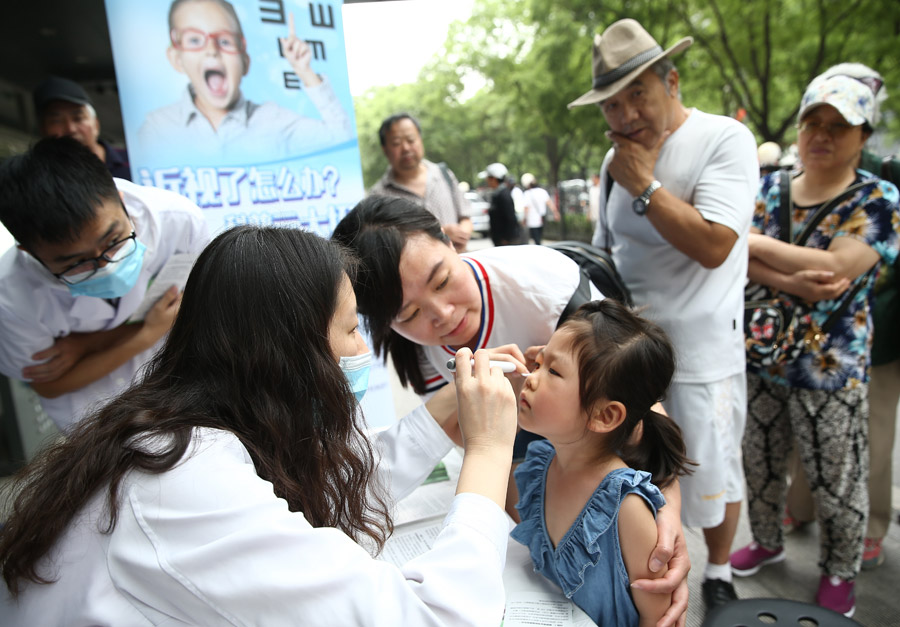Myopia occurring earlier: specialist
By China Daily | China Daily | Updated: 2018-06-07 09:42
More than 450 million Chinese suffer from shortsightedness

More than 450 million Chinese suffer from shortsightedness, the country's top health authority estimates, warning that it appears to be affecting children at a younger age.
The prevalence among Chinese primary school pupils is estimated at 30 percent, but the rate climbs to 60 percent for junior high students, 80 percent for those in senior high and 90 percent for college students, according to the National Health Commission. Most begin developing the condition in their teenage years.
The latest statistics were released at a commission news conference on Monday to mark National Eye Care Day, which falls on June 6 each year.
"Currently China lacks specific data on myopia, but clinical experience shows myopia is occurring at a younger age and worsening at a faster rate in China than the rest of the world," said Long Qin, a senior ophthalmologist at Peking Union Medical College Hospital.
The World Health Organization released a report in 2015 that said approximately half of Chinese were affected by myopia, and the myopia rate among teenagers was the highest in the world.
Wang Ningli, head of the Ophthalmologic Center at Beijing Tongren Hospital, said the primary cause of myopia is close-range eye fatigue, which is likely to happen when you work, read a book or play video games and hold the item you are looking at too close to your eyes.
The National Health Commission released three guidelines about preventing and correcting myopia and two other visual defects on Tuesday in a bid to improve eye health services and boost awareness of the conditions.
Wang highlighted two keywords from the guideline about myopia - close-range eye fatigue and outdoor activities.
He suggested that children as early as preschool begin taking part in outdoor activities for at least an hour, and ideally two hours, a day as it had proved effective in preventing myopia or halting its progression.
"The key is to let them see objects at least five meters away from them," Wang said. "A shallow space won't work." Recent research has also shown that eye drops with a low concentration of atropine, used in places like Singapore, can effectively relieve myopia. China's drug authority is currently assessing the treatment for the Chinese mainland market.
On Tuesday, a joint report on Chinese mobile phone habits issued by Aier Eye Hospital, a Chinese private hospital specializing in eye care, and Particle News app noted that 753 million Chinese spend an average of six hours staring at electronic screens a day. Women born in the 1990s spend an average of 10 hours a day, mainly browsing online shopping sites and watching videos.
Li Shaowei, a professor at the Aier School of Ophthalmology at Central South University in Changsha, Hunan province, suggested that frequent mobile users have regular eye examinations to prevent cataracts and other eye diseases.
Wang Xiaoyu contributed to the story.
























